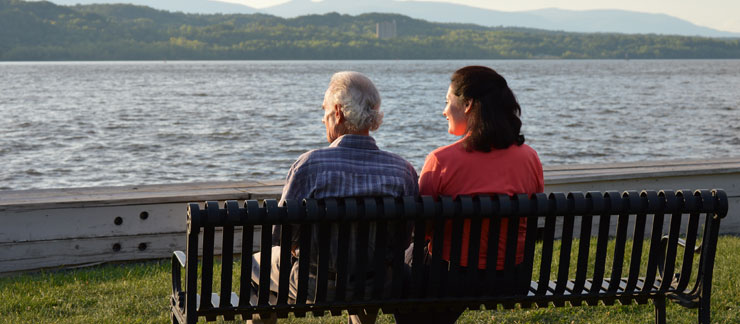
The Caregiving Crunch: What It Is, Why It Matters to Your Senior Loved One
As the baby boomers become seniors, America has more seniors than ever before. By 2060 it is estimated that the number of Americans over 65 years old will rise to 98.6 million, with 19.7 million people aged 85 or older.
With so many seniors in the population, it begs the question: Who will take care of them all?
This potential catastrophe has become known as the “caregiving crunch,” and it could be argued that it has already begun. Twelve million Americans require care today, and by 2050, it’s estimated that number will be more like 27 million, with over half of those needing care suffering from Alzheimer’s disease.
How Did We Get Here?
Between 2000 and 2016, the average age of an American according to the census bureau rose from 35.3 to 37.9 years old, with statisticians placing the blame for this rise on the baby boom, the post-World War II period from 1946 to 1964 when birth rates were high. Baby boomers started turning 65 in 2011 and more of them will be entering their senior years until 2029.
Added to the increased population, advances in medical science and data technology are helping people live longer than ever. People are now more health conscious, illustrated by things like declining cigarette sales since the 1980s and wellness food trends growing. As medical treatments improve and people live healthier lives, the average age of mortality has reached 78.6 years, up from 74.7 only 30 years ago.
As well as people living longer, people are also more likely to be living alone. Although 90 percent of people marry, nearly half of all marriages end in divorce. According to the U.S. Census Bureau, 28% of people aged 65 and older, live alone.
How Does This Affect the Caregiving Crunch?
Americans are very reliant on family members for caregiving in their old age. Around 34.2 million Americans provide unpaid care to a senior. Ninety-five percent of those are providing care to family members. In total, these unpaid caregivers are offering $500 million of free services to family members, more than three-times what Medicaid pays for professional care each year; however, if you live alone, with no spouse and no family members, this isn't a viable option. As a result, more and more people are turning to professional home care or nursing home care. The number of seniors receiving professional in-home care is continually rising, and since 2015, more seniors have received in-home care than those who receive care in nursing homes.
How Does the Caregiving Crunch Bite?
Effectively, there are not enough caregivers to look after the number of people who require care. In the next decade, it is estimated that demand for caregivers will outstrip supply by over three million. Moreover, it doesn't just affect those seniors who have no family. The shortage will affect seniors who have family caregivers needing respite. It'll affect seniors living with a condition that requires more care. It will affect seniors whose family members can't care fulltime due to work or other commitments. Families are more likely than ever to be spread geographically, so those who live far from loved ones are also more likely to be affected.
The quality of care is also a worry. As experienced professional caregivers’ schedules become fully committed, it’s more likely that families in need may mistakenly turn to unqualified and inexperienced caregivers.
What Can I Do to Avoid the Crunch?
Being prepared will be a big help. If your loved one needs a little extra help, look for it as quickly as possible. If your loved one has an existing relationship with a caregiver and receives care through an agency, he or she is more likely to be able to access more care at such times as it is needed.
Look into professional care through a larger agency. While local caregivers may be available, a national brand may be able to offer more caregivers. Going with a larger brand may also provide peace of mind to the family of the senior. Hiring through a large agency means you know that the caregiver has been through a vetting process and should be bonded, licensed and insured, offering a level of reassurance that you won’t find hiring through the personal ads.
For more information on what to look for in a home care agency, read this article.


